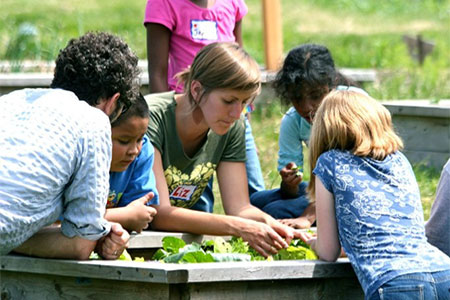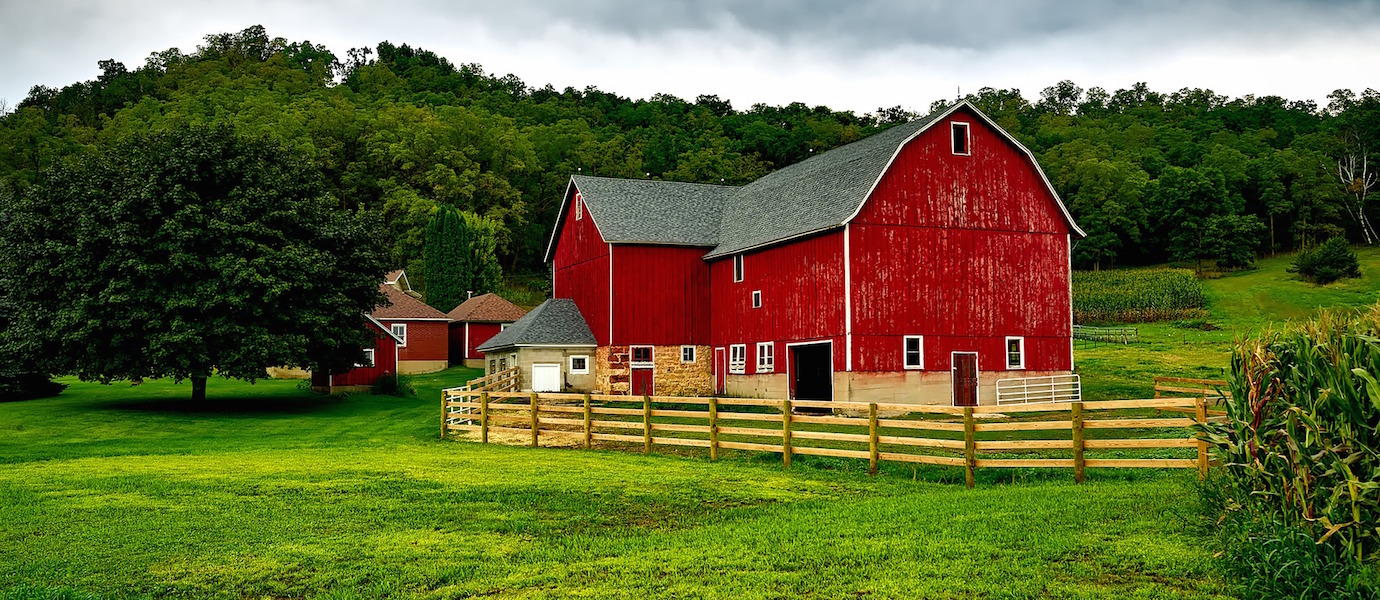
School
Arcadia Farm field trips emphasize healthy eating and sustainable growing practices. Students can begin their trip with a scavenger hunt, and then become farmers and rotate through interactive activity stations. They'll learn about topics like soil and compost, edible plant parts, life cycles, pollination and pest control, and livestock. They'll get to practice measuring, adding & subtracting, critical thinking, making predictions, and much more.
supports classroom learning in:
Science.
topics covered:
Science, Farming, Plants, Pollination, Animals, Sustainability, Health.
contact info
Name: Ivy Assiter.
Email: [email protected]
INFO
ABOUT
Arcadia Farm
Arcadia Farm is located just a few short miles from downtown Washington, DC on the historic grounds of Woodlawn Estate. Arcadia’s demonstration farm and educational children’s garden encompasses four acres, providing a sustainable model of agriculture to new farmers, students and the public through hands-on community engagement.
contact info
Hrs: Vary.
HELPFUL LESSON PLAN(S)
Prepared by FieldTripDirectory.com
Farm Lesson Plan
FUN FACTS
The average American may eat 125 pounds of potatoes each year, but corn is actually America’s number one field crop, providing ingredients for cereals, peanut butter, snack foods and soft drinks. The average person eats 68 quarts of popcorn a year alone! Use a trip to an agricultural farm to find out where our fruits and vegetables come from. Compare organic, pesticide-free, and genetically engineered crops. Research the products made possible by crops grown in the U.S. (shampoos, crayons, and baseball bats all come from agricultural products, for example). Ask your local farm about the benefits of eating local or growing your own garden.
View Lesson Plan>>
Scouts
Arcadia Farm field trips emphasize healthy eating and sustainable growing practices. Students/scouts can begin their trip with a scavenger hunt, and then become farmers and rotate through interactive activity stations. They'll learn about topics like soil and compost, edible plant parts, life cycles, pollination and pest control, and livestock. They'll get to practice measuring, adding & subtracting, critical thinking, making predictions, and much more.
supports scout badges in:
Science.
topics covered:
Science, Farming, Plants, Pollination, Animals, Sustainability, Health.
contact info
Phone: Ivy Assiter.
Email: [email protected]
INFO
ABOUT
Arcadia Farm
Arcadia Farm is located just a few short miles from downtown Washington, DC on the historic grounds of Woodlawn Estate. Arcadia’s demonstration farm and educational children’s garden encompasses four acres, providing a sustainable model of agriculture to new farmers, students and the public through hands-on community engagement.
contact info
Hrs: Vary.
HELPFUL LESSON PLAN(S)
Prepared by FieldTripDirectory.com
Farm Lesson Plan
FUN FACTS
The average American may eat 125 pounds of potatoes each year, but corn is actually America’s number one field crop, providing ingredients for cereals, peanut butter, snack foods and soft drinks. The average person eats 68 quarts of popcorn a year alone! Use a trip to an agricultural farm to find out where our fruits and vegetables come from. Compare organic, pesticide-free, and genetically engineered crops. Research the products made possible by crops grown in the U.S. (shampoos, crayons, and baseball bats all come from agricultural products, for example). Ask your local farm about the benefits of eating local or growing your own garden.
View Lesson Plan>>
Homeschool
Arcadia Farm field trips emphasize healthy eating and sustainable growing practices. Students can begin their trip with a scavenger hunt, and then become farmers and rotate through interactive activity stations. They'll learn about topics like soil and compost, edible plant parts, life cycles, pollination and pest control, and livestock. They'll get to practice measuring, adding & subtracting, critical thinking, making predictions, and much more.
supports classroom learning in:
Science.
topics covered:
Science, Farming, Plants, Pollination, Animals, Sustainability, Health.
contact info
Name: Ivy Assiter.
Email: [email protected]
INFO
ABOUT
Arcadia Farm
Arcadia Farm is located just a few short miles from downtown Washington, DC on the historic grounds of Woodlawn Estate. Arcadia’s demonstration farm and educational children’s garden encompasses four acres, providing a sustainable model of agriculture to new farmers, students and the public through hands-on community engagement.
contact info
Hrs: Vary.
HELPFUL LESSON PLAN(S)
Prepared by FieldTripDirectory.com
Farm Lesson Plan
FUN FACTS
The average American may eat 125 pounds of potatoes each year, but corn is actually America’s number one field crop, providing ingredients for cereals, peanut butter, snack foods and soft drinks. The average person eats 68 quarts of popcorn a year alone! Use a trip to an agricultural farm to find out where our fruits and vegetables come from. Compare organic, pesticide-free, and genetically engineered crops. Research the products made possible by crops grown in the U.S. (shampoos, crayons, and baseball bats all come from agricultural products, for example). Ask your local farm about the benefits of eating local or growing your own garden.
View Lesson Plan>>
